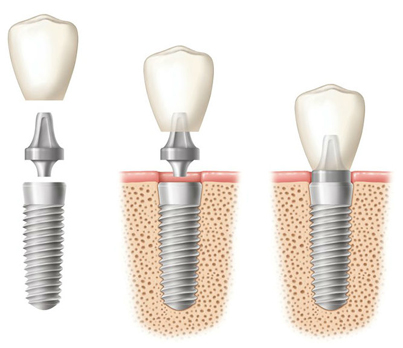This past spring, my dentist placed an implant in an upper right molar. I lost the tooth in a 2015 accident but didn’t have it replaced. Before surgery, my dentist told me that I didn’t need a graft, and he could place the tooth with no problem. After my recovery, my dentist changed the story and said that he placed the implant, although I had little bone left. I’ve had nothing but problems with the implant, and now my dentist said he recommends a bridge, but he will have to grind down my teeth. I don’t want a bridge. I want a $2675 refund for the implant that he wants to remove. I am incredibly frustrated because now, during a pandemic, I will have to find another dentist. I don’t know what I should ask you. I am looking for advice. Thank you. Fallon from Augusta, GA
Fallon,
Legally and professionally, your dentist owes you a refund. We’ll discuss both aspects.
Legal responsibility
An implied warranty is a legal principle that says you should receive what you paid for, and it should be suitable for its purpose. Your dentist failed to meet the agreement for these reasons:
- A dental implant needs enough bone volume to support it.
- Before surgery, your dentist explained that you could receive an implant without bone grafting.
- During surgery, your dentist saw that you don’t have enough bone to support an implant, but he placed it anyway.
- Your dentist now recommends removing the implant and replacing it with a dental bridge.
Your dentist can’t give you what you paid for, so you are entitled to a refund.
Professional responsibility

Dental implants need enough bone to support them
Before you receive a dental implant, your dentist or oral surgeon must take x-rays—preferably a 3-D CT scan—to reveal your facial and jaw structure and your teeth. Information from the scan helps determine if you need bone grafting. Your description seems to indicate that x-rays were skipped because it was not until during surgery that your low bone volume was noticed.
If that is what happened, you probably have a malpractice case because your dentist violated the standard of care. A malpractice attorney can tell you if your compensation can include inconvenience, trauma, and risk fees.
What about a dental bridge?
If you are a candidate for dental implants, you don’t have to settle for a bridge.
Key points:
- A dentist must cut down the healthy tooth on either side of the missing one must to accommodate a crown for the bridge.
- A dental implant does not affect adjacent teeth.
- Implants are anchored in the bone and outlast and outperform a bridge.
We advise that you look for a skilled implant specialist.
- Schedule a consultation to get information on how the dentist plans for a successful outcome.
- Ensure that your new provider will take a CT scan and explain your options for building up your bone if needed.
- Ask your new dentist if he or she is willing to contact your current dentist to help you get a refund.
Best wishes on a smooth resolution with your current dentist and getting an implant that lasts.
Gilberto Tostato, DDS of Five Star Dental Group in San Antonio, sponsors this post.


